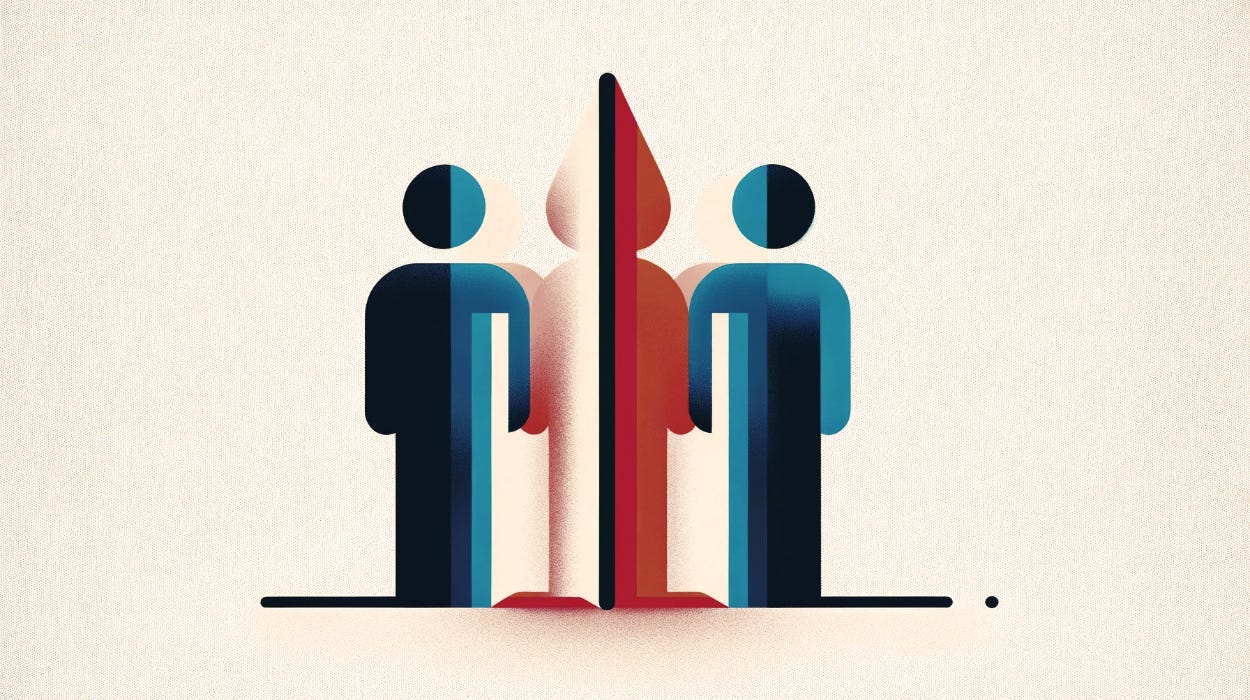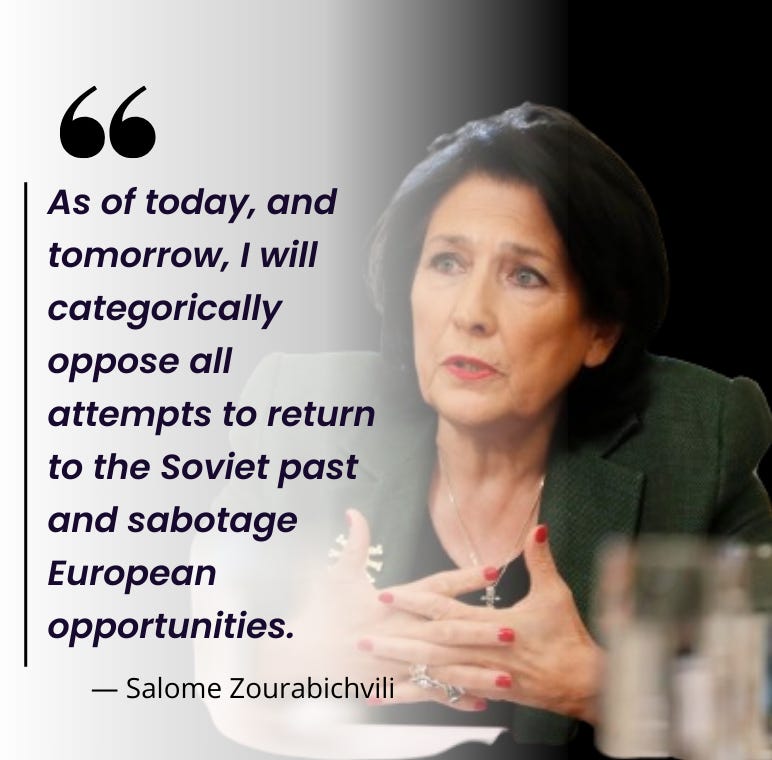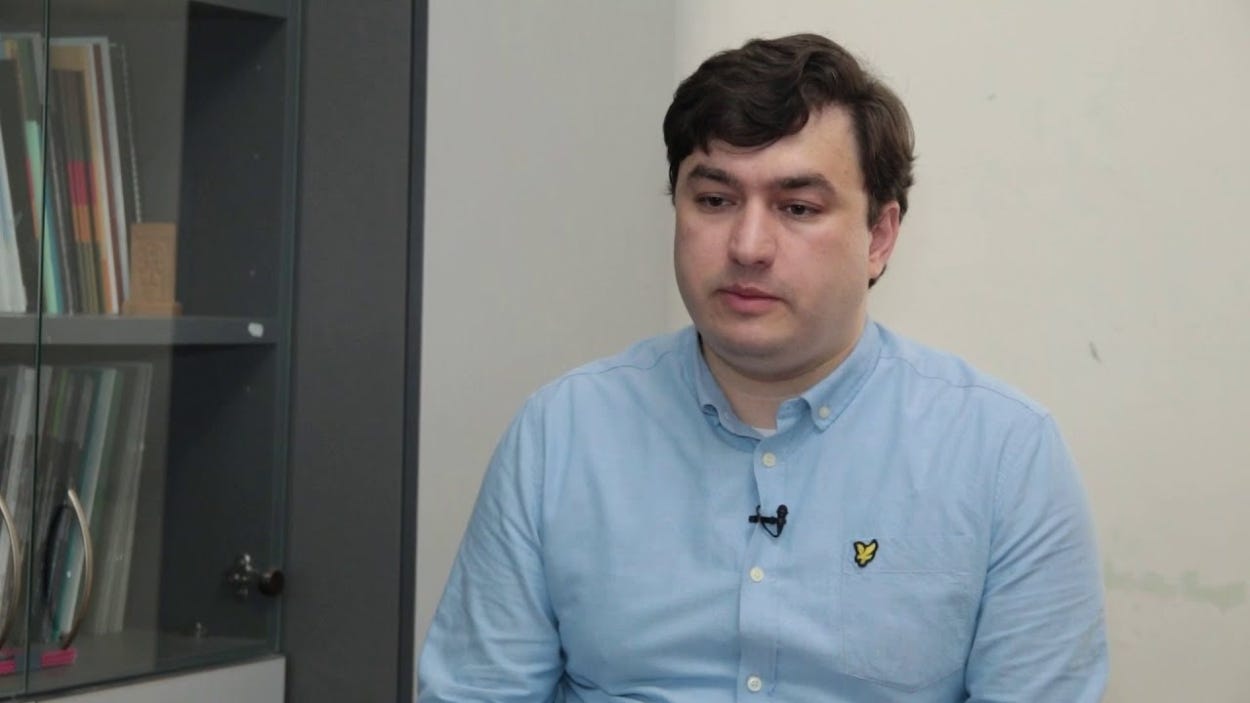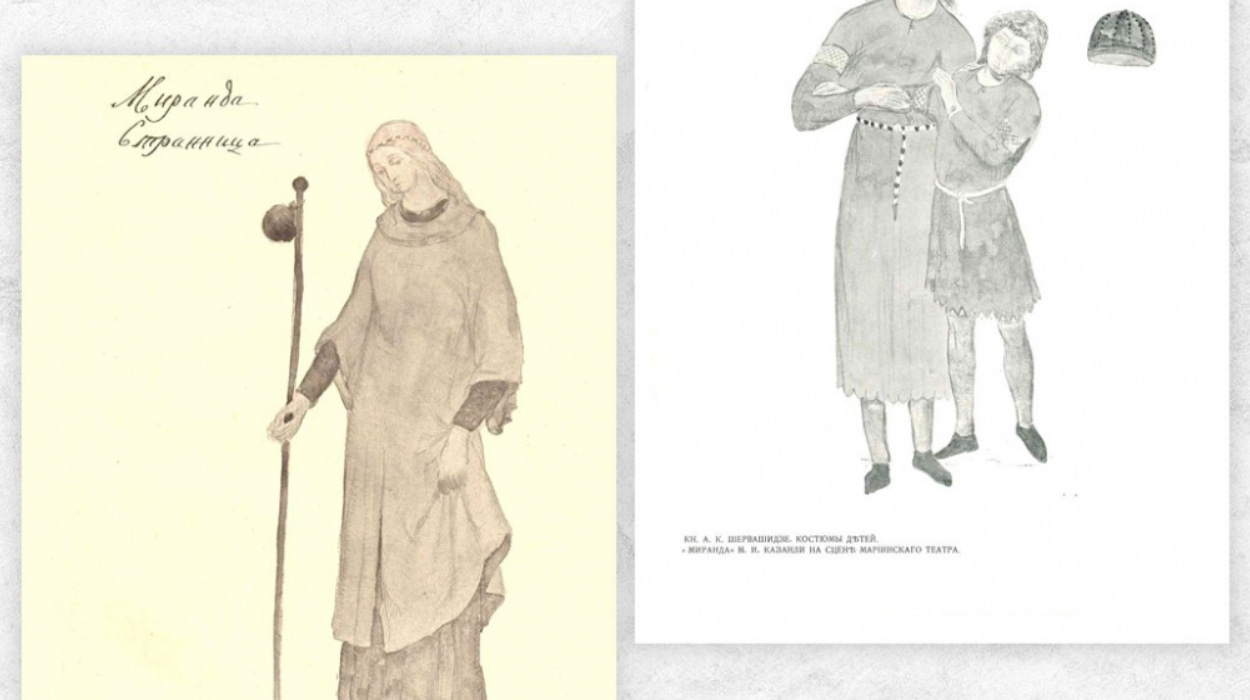President Bzhania Accused of Constitutional Breach with "Foreign Agents" Draft Law
Aslan Bzhania faces accusations of violating the constitution through his proposal of the "On NGOs and Individuals Acting as Foreign Agents" draft law to the Parliament of Abkhazia.
SUKHUM / AQW'A — The ongoing debate in Abkhazia intensifies as President Aslan Bzhania faces accusations of violating the constitution through his proposal of the "On NGOs and Individuals Acting as Foreign Agents" draft law to the Parliament of Abkhazia.
This proposed legislation, titled "On NGOs and Individuals Acting as Foreign Agents," has raised concerns among legal experts and public figures, according to a statement published by the "OKNO" Telegram channel. This channel is managed by members of the Board of Directors of the "Centre for Humanitarian Programs," Liana Kvarchelia, and lawyer Said Gezerdaa, among others.
Constitutional Freedoms at Stake
Critics argue that the draft law infringes upon fundamental constitutional rights and freedoms, including freedom of speech, thought, belief, association, and the right to peaceful assembly. They assert that President Bzhania's actions contravene the principle of a legal state as outlined in Article 1 of the Constitution, which prohibits arbitrary decisions by officials from becoming legislative norms. This approach, they claim, is indicative of authoritarian and totalitarian regimes, where the law is imposed on society without democratic constraints.
For readers interested in a more detailed exploration of the criticisms and concerns surrounding this draft law, a full statement is available on the "OKNO APSNY" Telegram channel.
The Statement from "OKNO"
President Aslan Bzhania has committed grave violations of the Constitution of the Republic of Abkhazia by submitting to the Parliament of the Republic of Abkhazia the draft law "On NGOs and Individuals Performing the Functions of Foreign Agents".
1. The draft law is criticised for potentially undermining foundational constitutional rights, freedoms, and principles that are crucial to our nation, including:
The freedom of speech;
The freedom of thought;
The freedom of beliefs;
The right to association;
The right to conduct peaceful rallies, meetings, marches, and demonstrations;
The principle of equality before the law and non-discrimination.
2. The Constitution unequivocally forbids any reduction or revocation of rights in any manner, particularly through legislative means (Article 35, Part 1). Employing the law to curtail the rights of citizens, President Bzhania contravenes the Constitution on two significant counts:
He breaches the legal state principle (Article 1 of the Constitution), which prevents arbitrary decisions by officials from becoming legislative standards. The interpretation of law as a discretionary "command" devoid of democratic limitations is indicative of authoritarian and totalitarian regimes. Through his actions, President Bzhania fosters a regime where official caprice overrides legal authority.
The nature of this draft law is such that it should not have been presented to the Parliament of the Republic of Abkhazia, as it conflicts with the Constitution. No law that undermines or diminishes human rights and freedoms is permissible within the Republic (Article 9).
3. President Bzhania's conduct should be viewed as a dereliction of the responsibilities assigned to him by the Constitution of the Republic of Abkhazia and his oath of office:
[in Abkhaz] “Ҭоуба зуеит, сымч-сылша, схы-сыхшыҩ, сыҧсҭазаара зегьы Сыҧсадгьыл, сыуаажәлар рымаҵ аура ишазыскуа, сыжәлар ирымҭаны снапаҿы иҟало амчра ҳҳәынҭқарра Аконституциа, иахьатәи уи амш, уаҵәтәи уи аҧеиҧш рыхьчараз схы ишасырхәо. Жәлар рылахь соуааит иҧшьоу абри ахықәкы сацәхьаҵны саныҟала!”.
Firstly, the Constitution explicitly prohibits the enactment of laws that negate or diminish rights and freedoms (Article 35, Part 1).
Secondly, by failing to safeguard human rights and freedoms, the Constitution, and the laws of the Republic of Abkhazia (Article 53, Item 1), the President has neglected his primary constitutional duty. The enactment of this law would result in the infringement of citizens' personal and political rights.
Thirdly, the presidential oath expressly states his duty to act in the citizens' interest, regardless of their demographic representation, committing to "respect, protect, and defend, with all my strength, my life, and my work, the Homeland, the welfare of my people, to uphold the authority of the Constitution of our state, today and in the future, and to ensure the protection of its principles."
Fourthly, the Constitution directly prevents the President from using his powers to alter the constitutional order. President Bzhania's attempts to reintroduce repressive measures and question the constitutional framework of the Republic of Abkhazia represent a breach of the principle of a legal and democratic state (Article 1, Part 1).
These actions, as outlined in Article 64 of the Constitution, could constitute grounds for the President's removal from office.
For a comprehensive review, the draft law is available for examination [here].
"How Can We Allow One Abkhaz to Label Another Abkhaz?" By Vitaly Sharia
Vitaly Sharia | Ekho Kavkaza — Opposition members of civil society in Abkhazia have criticised the draft law on "foreign agents", deeming it unconstitutional and divisive. President Aslan Bzhania introduced the bill to Parliament, which identifies both non-commercial organisations and individuals receiving funds or other assets from foreign sources as potential foreign agents.
The president recently introduced a bill titled "On Non-Commercial Organisations and Individuals Acting as Foreign Agents" for Parliament's consideration. According to a summary by Apsnypress, the draft law proposes that non-commercial organisations of any legal form can be designated as foreign agents if they receive money or other assets from foreign sources and participate in political activities in Abkhazia, including on behalf of foreign sources. Foreign citizens and stateless persons can also be labelled as foreign agents if they engage in political activities in Abkhazia, funded by foreign sources. The definition of foreign sources includes foreign states, governmental bodies, international organisations, and individuals funded by these entities. The Ministry of Justice of Abkhazia will maintain a registry of organisations and individuals recognized as foreign agents, with violations of the law resulting in administrative, criminal, and other forms of liability.
It is worth noting that resistance to the so-called foreign agents law has been growing within Abkhazian society for some time. Over two years ago, on January 27, 2022, Apsadgyl-info published a public appeal signed by hundreds, addressed to the president, prime minister, and speaker of the Parliament, expressing concern that the discussion on adopting the "NGO-foreign agents law" had reached a new level.
Akhra Aristava: "This is the Path to Creating an Oligarchic Regime"

In the upcoming session of the Parliament of Abkhazia, amendments to the law on investment activity will be considered. Also in line are two other controversial laws – on the mutual recognition of judicial decisions and on the legalisation of apartments. Abkhazian economist Akhra Aristava warns of the negative consequences of these three laws for individual citizens and the republic as a whole.
Akhra Aristava: “The amendments to the law on investment activity that are currently proposed, I would characterise negatively. This is not the first attempt. We remember that initially, the president's administration tried to provide 25-year benefits to investors in strategic sectors of the economy. The deputies did not support this idea. Last year, the same was proposed by the Ministry of Economy, but the deputies rejected it. And now, this is already the third attempt to provide incredible, unjustified benefits for 25 years on a number of taxes specifically for economic activities in the strategic sectors of the Republic of Abkhazia. In my understanding, in the absence of reforms, foreign investors are offered to exploit Abkhazia without any participation of the republic's citizens, meaning our people are offered to be not owners, but cheap labour. And all the profitable economic sectors are to be handed over to large foreign capital. This is an attempt to implement the same policy that was carried out by [Anatoly] Chubais during Yeltsin's time, when the economy falls into the hands of a small group of people with incredible benefits, while the people are left without profit from these economic sectors.”
Meanwhile, she passionately advocates for Georgia's borders as they were drawn in the good old Soviet days. Opposing the Soviet legacy by day, yet cuddling up to its geographical outlines by night. Fascinating.
The revolutions of February and October 1917 and the civil war and war of intervention that followed created completely new conditions for the realization of national ambitions. The numerically small Abkhaz people had a number of potential allies among whom they were able to choose: Russia, Turkey, union with the “Mountain Peoples’ Republic of the North Caucasus”, the “Transcaucasian Federation”, or the Georgian Republic. [See also: Abkhazia, Georgia and the Caucasus Confederation, by Stanislav Lakoba]
“Following the failure in November 1917 of the attempt to unite with the peoples of the North Caucasus, the Abkhaz People’s Soviet in Sukhumi signed an agreement on 9 February 1918 on mutual relations with the Georgian National Council. This recognized an “indivisible Abkhazia within frontiers stretching from the River Ingur to the River Mzymta” (later known as the River Psou). However, this did not stop the Georgian Democratic Republic that was declared in May 1918 from sending troops to “meet the Bolshevik menace” in June 1918 with German backing. To this day, Abkhazians consider this the date of their country’s annexation by Georgia, while Georgians speak of the “restoration of Georgian unity”. Following Georgia’s conquest by the Red Army in February 1921, Abkhazia’s legal status came up for discussion once again: A “Soviet Socialist Republic of Abkhazia” was initially declared on 4 March 1921 alongside the “Soviet Socialist Republic of Georgia”. On 21 May 1921, a decision was made on the incorporation of Abkhazia in a Georgian federation, and, in a separate treaty of union, signed on 16 December 1921, the two republics agreed on especially close military, political, and financial/economic co-operation. Abkhazia joined the Transcaucasian Federation as an equal partner of Georgia, Armenia, and Azerbaijan, and, as a member of the Federation, participated in the founding of the Soviet Union as a full subject of international law. “In this way, the sovereignty of Abkhazia was not limited by the Georgian constitution, but solely by that of the Transcaucasian Soviet Federal Socialist Republic and the USSR. Abkhazia thus retained the formal right to secede from both federations without reference to Georgia.” With not a little help from Georgians Joseph Stalin and Lavrenti Beriya, Abkhazia was transformed into an Autonomous Republic of Georgia in 1931. This represented not only the removal of its status as a republic, i.e. a legal downgrading, but also opened the door to a policy of Georgianization.”
— The Abkhazia Conflict in Historical Perspective, by Eva-Maria Auch
In: IFSH (ed.), OSCE Yearbook 2004, Baden-Baden 2005, pp. 221-235.
Said Gezerdaa: "State Security as a Tool for Blackmail and Compromise"
Elena Zavodskaya | Ekho Kavkaza — Representatives of non-governmental organisations in Abkhazia are experiencing pressure from the Ministry of Foreign Affairs, the State Security Service, and Abkhazian State Television. They have approached television broadcasters to exercise their legally guaranteed right of reply and are open to meeting with the Ministry of Foreign Affairs' leadership, provided that independent journalists are present. To date, their efforts to secure a response have been unsuccessful.
Inal Ardzinba, the Minister of Foreign Affairs of Abkhazia, has adopted a rigid and uncharacteristically undiplomatic stance in dealing with international organisations in Abkhazia and in suppressing local NGOs. The latter, composed of civil activists, have been vocal in their criticism of governmental actions.
Recently, Abkhazian Telegram channels have been disseminating statements from well-known civil society figures. They are asserting their right to a rebuttal on Abkhazian State Television, as stipulated by the 'On Media' law. This move comes in the wake of allegations made by Zaal Khvartskiya, the Deputy Chairman of the State Security Service of the Republic of Abkhazia, on air, where he accused NGOs of undermining the country's political stability.
Lawyer Said Gezerdaa has shed light on recent communications with the heads of Abkhazian State Television (AGTRK).
Mussa Ekzekov Acquires Ten Works by Alexander Chachba-Shervashidze at Auction
In a notable effort, Mussa Ekzekov, Chairman of the Supreme Council of the World Abaza-Abkhaz Congress, recently secured ten artworks by Alexander Chachba-Shervashidze, heralded as the inaugural professional artist of Abkhazia with global acclaim. This acquisition was prominently announced on the official website of the World Abaza-Abkhaz Congress.
The acquisition comes in the wake of a devastating fire that almost entirely obliterated the collection of the National Art Gallery of Abkhazia, including around 300 works by Prince Alexander Chachba-Shervashidze. The World Abaza-Abkhaz Congress team has been instrumental in locating works that constitute the invaluable legacy of Abkhazian culture.
E-LIBRARY
Recherches anthropologiques dans le Caucase (Vol. I, II, III, IV), by Ernest Chantre
Recherches anthropologiques dans le Caucase (Vol. I, II, III, IV)
Anthropological research in the Caucasus (Vol. I, II, III, IV)
Author: Ernest Chantre (1843-1924)
Year: 1885
Place of Publication: Paris/Lyon France
Published by: C. Reinwald; Lyon, H. Georg
Number of pages: Vol I: 108, Vol II: 225, Vol. III: 249, Vol. IV: 389
Language: French









